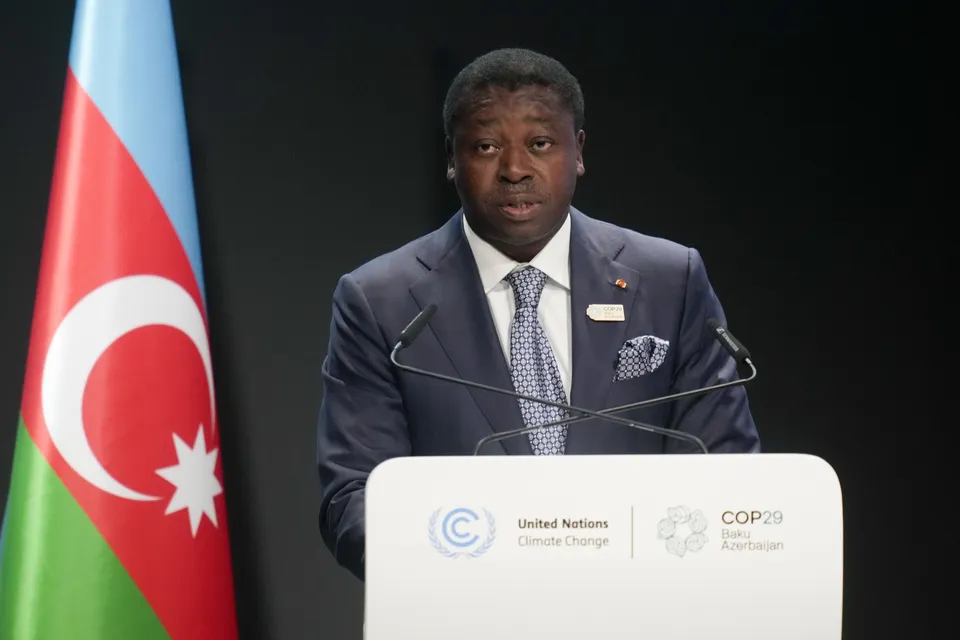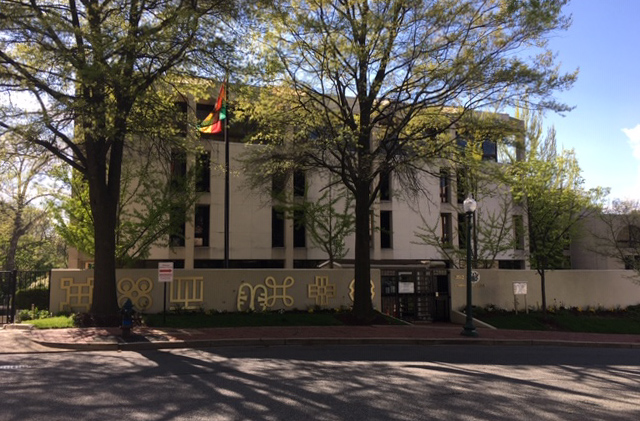
Togo Swears In Gnassingbé Under New Parliamentary System That Could Have Him Rule Indefinitely

Togo entered a new political era on Saturday, May 3, with the swearing-in of Faure Gnassingbé as President of the Council of Ministers, a role that now holds executive authority under the country’s newly adopted parliamentary system.
The ceremony in Lomé, attended by top government officials, diplomats, and military leaders, marked the official transition to the Fifth Republic, following the promulgation of a new constitution in May 2024.
The constitutional overhaul, approved by parliament in April 2024, shifts Togo from a presidential to a parliamentary system. In accordance with Article 47 of the new Constitution, the President of the Council of Ministers now holds full executive powers, including the leadership of the government and the armed forces, replacing the previously executive role of the President of the Republic.
The new system abolishes direct presidential elections, instead allowing parliament to elect the president, and introduces a six-year term for the President of the Council of Ministers, renewable indefinitely as long as the ruling party maintains a parliamentary majority.
During a plenary session of Congress earlier in the day, Gnassingbé, leader of the ruling Union for the Republic (UNIR) party—holding 108 out of 113 seats in the National Assembly—was appointed to the post by parliamentarians.
Gnassingbé pledged in his oath to respect and defend the Constitution, serve the people, and promote peace, national unity, and human rights.
At the same time, Jean-Lucien Kwassi Savi de Tové, an 86-year-old veteran of the Togolese political scene and former minister, was unanimously elected by Congress as the honorary President of the Republic. His role, under the new parliamentary system, is symbolic, tasked with guaranteeing national unity but without executive power.
The transition to the Fifth Republic and the accompanying reforms were criticised by opposition figures, who viewed the changes as a maneuver to extend the Gnassingbé family’s long-standing rule.
Gnassingbé, who has been in power since 2005 following the death of his father, Gnassingbé Eyadéma, who had ruled Togo for 38 years, was elected unopposed by 150 parliamentarians of the ruling party.
Despite the controversy, the ruling party described the shift as part of broader efforts to modernise Togo’s political system and ensure institutional balance under the new parliamentary regime.
About The Author
Related Articles
Cotê D’Ivoire: Thousands Rally in Abidjan as Opposition Demands Electoral Reforms Ahead of October Election
Thousands of opposition supporters gathered in Abidjan on Saturday, May 31, to...
ByJoy ChukwuJune 1, 2025Togo Stops Issuing Mining Permits to Reform Outdated Mining Code
Togo has suspended the issuance of new mining permits for prospecting and...
ByJoy ChukwuJune 1, 2025ICYMI: Ghana Shuts Down Washington Embassy Over Visa Fraud Scandal
Ghana has temporarily closed its embassy in Washington, D.C., following the uncovering...
ByJoy ChukwuMay 31, 2025Confederation of Sahel States Moves to Establish Joint Judicial Body
The Confederation of Sahel States (CSS), comprising Mali, Niger, and Burkina Faso,...
ByJoy ChukwuMay 31, 2025












Leave a comment